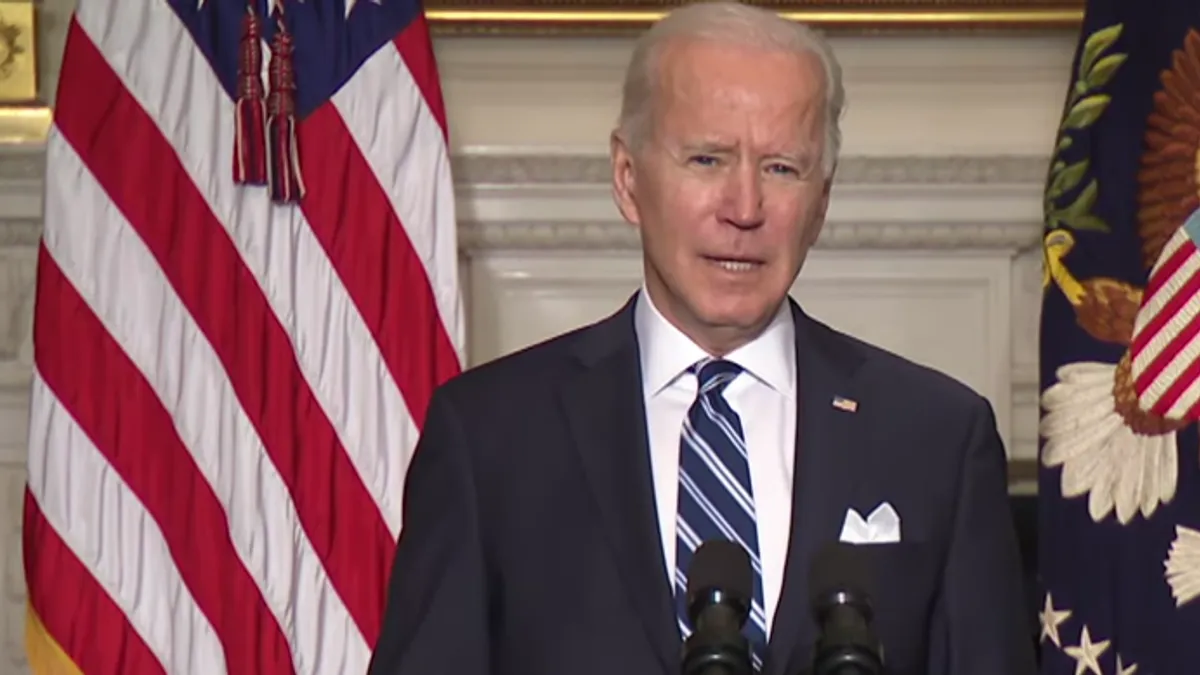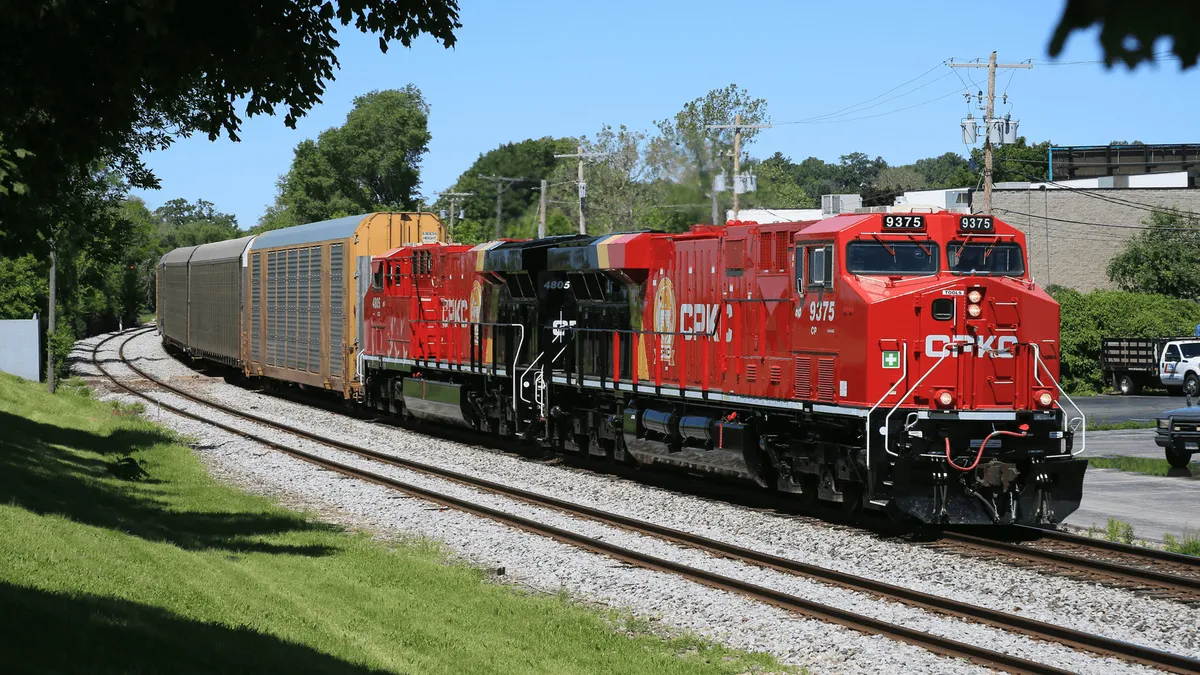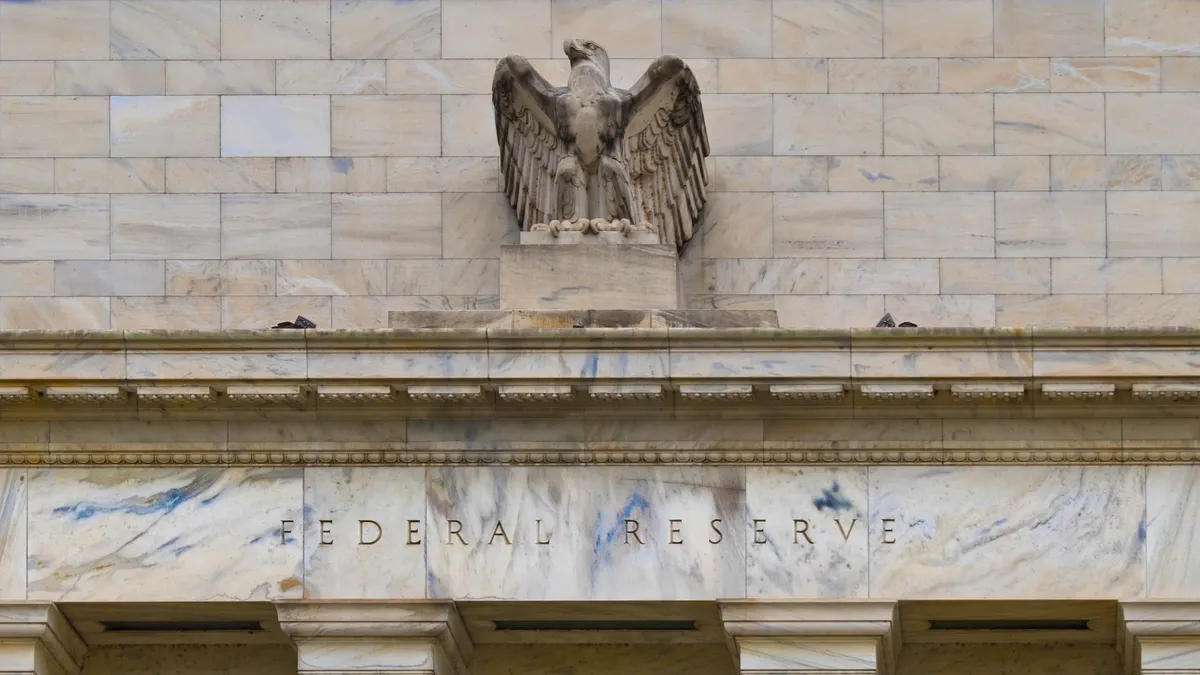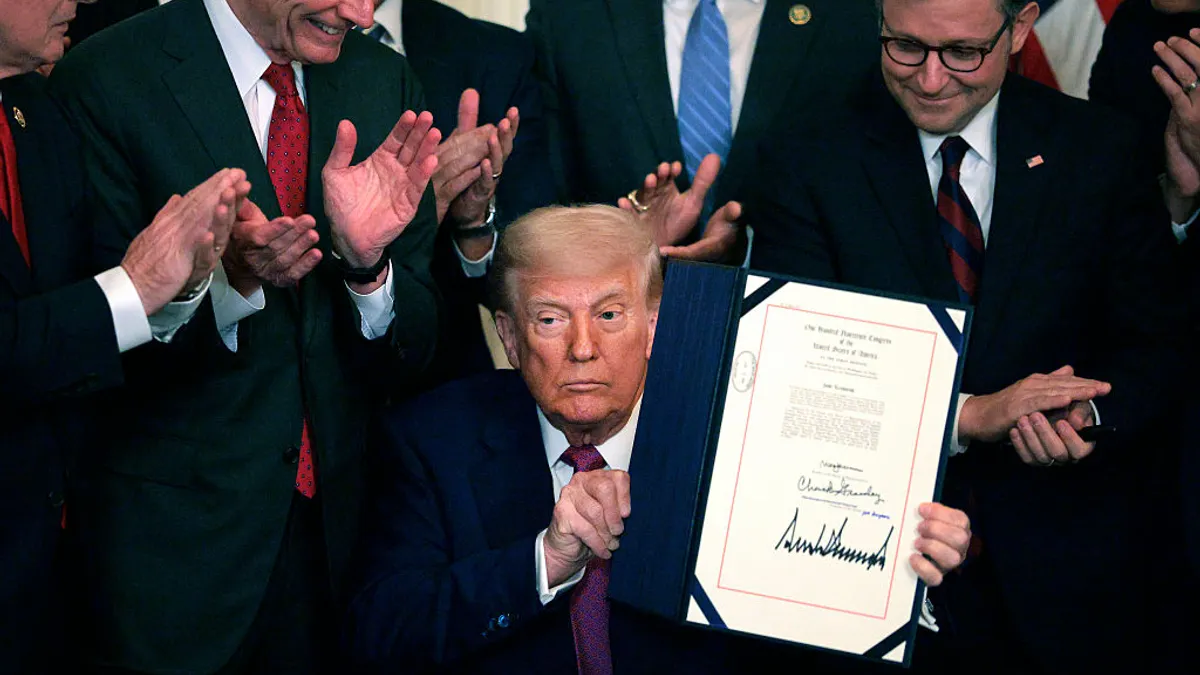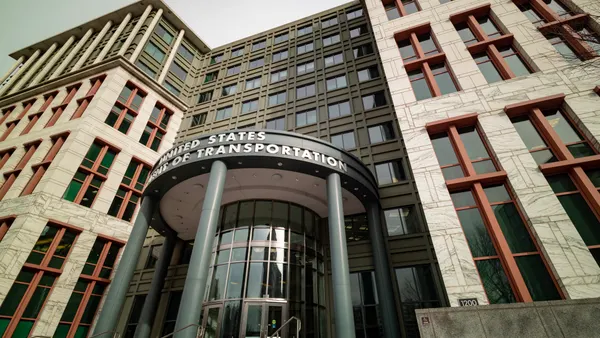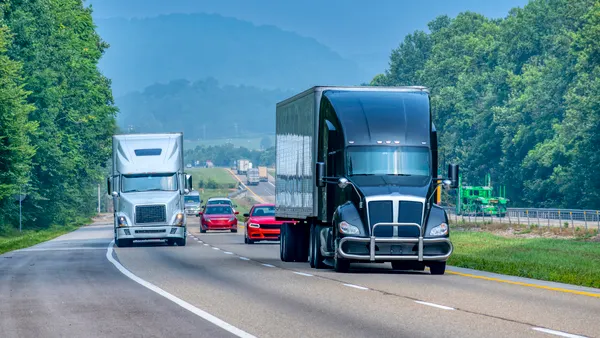With a $2 trillion spending proposal that dwarfs the New Deal and the build-out of the American interstate highway system, President Joe Biden provided long-awaited details for a massive infrastructure plan that touches on everything from airports to highways, clean drinking water to revamped electric grids, school construction to public transit and clean energy to bolstered broadband deployment.
Biden's "American Jobs Plan," released on Wednesday, carves out $621 billion for transportation infrastructure; $689 billion for buildings and utilities; and $500 billion for worker training, research and development, and domestic manufacturing initiatives.
Noting that public domestic investment as a share of the economy has fallen 40% since the 1960s, the White House proposed to pay for the plan over 15 years, primarily by hiking the corporate tax rate to 28% from 21%, a move that would partially erase former President Donald Trump's tax reform legacy.
On the transportation front, the proposal includes:
- $174 billion for electric vehicle incentives.
- $115 billion for roads and bridges.
- $85 billion for public transit.
- $80 billion for passenger and freight rail.
- $50 billion in disaster resilience of infrastructure.
- $25 billion for airports.
- $20 billion to improve road safety.
- $20 billion to mitigate infrastructure impact on underserved communities.
- $17 billion for waterways and ports.
Companies and business groups responded on Wednesday with statements reacting to the breadth and scope of the plan, as well as what was left out.
"We are pleased to see that the Administration’s plan did not incorporate tolling existing interstates and commercializing rest areas, which would harm off-highway businesses and highway users," NATSO said in a statement.
The group, formerly known as National Association of Truck Stop Operators, is opposed to Congress carving out an exception to the commercial-activity ban and allowing electric-vehicle charging infrastructure.
Biden's plan does provide investments for electric freight vehicles, the Consumer Brands Association noted in a statement, which it considers a key issue. But the group urged lawmakers to go further and address other issues, "such as an increase in gross vehicle weight standards to increase efficiency while making roads safer and minimizing congestion."
The American Society of Civil Engineers, which recently gave the country's infrastructure a C-minus grade, applauded Biden's plan.
"ASCE urges Congress and the administration to now work together to develop a comprehensive, bipartisan, infrastructure bill that will set the plan in motion," Jean-Louis Briaud, president of ASCE, said in an emailed statement.
Pushback on funding
Jacob Arlein, principal at San Francisco-based engineering and energy efficiency consultancy Stok, said the scope of the plan is remarkable, but that its breadth could also be its Achilles' heel.
"The amount of money in this bill is staggering, and the commitment to spend some of the money to directly address climate change is a huge step forward," Arlein said. "There are many winners that will benefit from this bill, and that may be its downfall. It tries to tackle myriad problems beyond infrastructure, and putting too many of these problems in one behemoth omnibus bill will make it difficult to pass."
While infrastructure reform has had bipartisan ideological support in Congress, Republicans have already balked at the idea of raising taxes to pay for it, and powerful business groups have signaled their opposition to the strategy, as well.
The American Trucking Associations also voiced opposition to Biden's tax proposal, as well as other concerns, and said it recognizes the plan as "the beginning of the legislative process, not the end."
"We do not believe the Administration’s funding proposal is politically tenable nor a reliable long-term solution to the shortfall facing the Highway Trust Fund. We also disagree with certain provisions – especially those related to labor – that are counterproductive to economic growth and will only serve as political poison pills," ATA President and CEO Chris Spear said in a statement. "However, the President’s broader plan is an important marker as Congress begins work on a surface transportation reauthorization bill."
During a speech in Pittsburgh to sell the plan, Biden said he was open to alternatives to paying for the proposal.
"These are my ideas on how to pay for this plan," Biden said from a carpenters union training hall where he presented the specifics of the proposal. "If others have other ideas, let them come forward. I'm open to other ideas, so long as they do not impose any tax increase on people making less than $400,000."
Sanya Carley, a professor and director of the public affairs program at Indiana University, said the plan is among the largest in history.
"And it is more than just infrastructure," she said. "It's a hybrid of a New Deal, in combination with a stimulus package focused on jobs, equity and climate."
But, like others, she said the broad scope of the proposal could also open it to opposition.
"Everybody says that infrastructure is a bipartisan issue, but it's very difficult to pass it because the devil's in the details of where the money is actually going," Carley said. "And this is a plan that has elements that might just stir the pot a little bit for some people."


